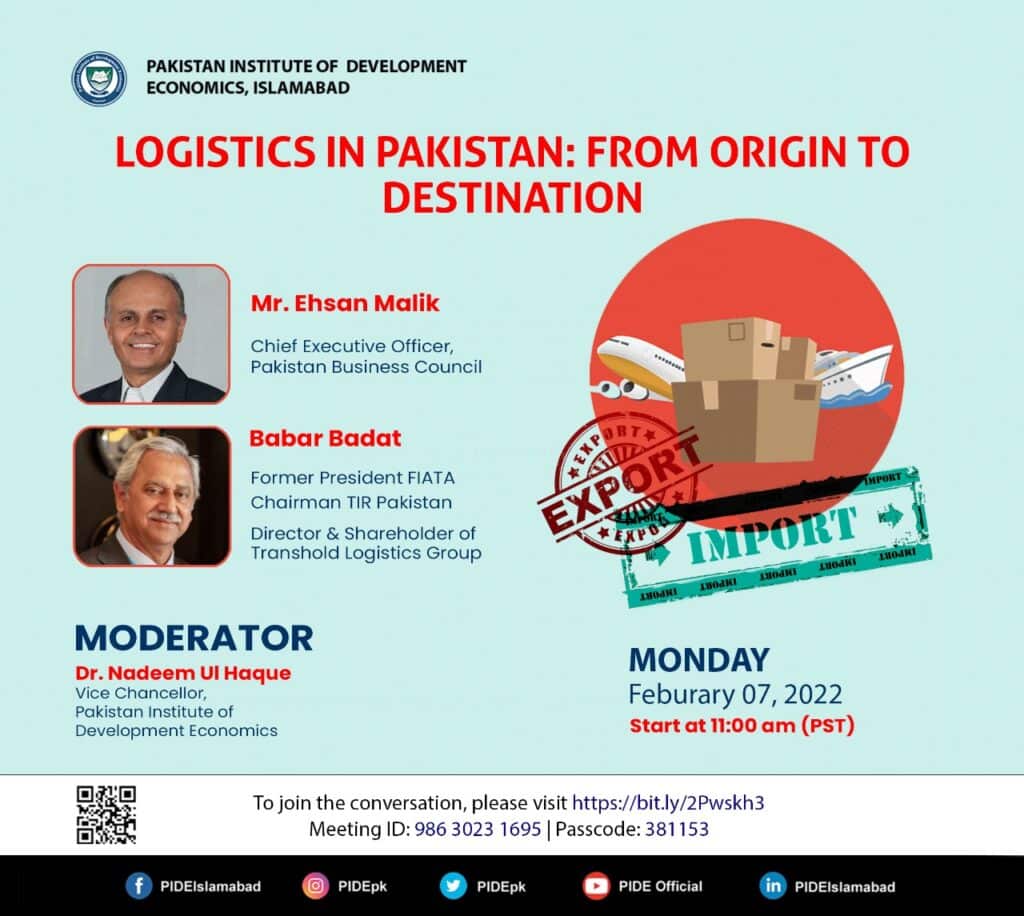The market of 220 million consumers and international geographic location connects Pakistan with the neighboring countries via ports, borders and air ports. The market size and the location provide immense opportunities both at individual and macro level for trade, natural corridor for transit trade, supply chain inclusiveness, e-commerce. Yet, this is possible only with an efficient and modern transport and logistics sector. Globally the logistics are declared as an important component of any economy. Several countries have efficiently reduced the cost of logistics with supporting policies and regulations. In America, it is only 8.5 % of GDP. While it is high for China (17.8 %) and Vietnam (22.5 %) restricting development. Pakistan ranks 122 in the logistics performance index (LPI, 2018), lowest in South Asia. According to the recently approved National Logistics and Freight policy 2021, the sector is highly fragmented and in dire need of modernization. The absence of a comprehensive vision for all the ministries and departments is a major hindrance. As a first step, the policy categorizes ten prioritized areas for the implementation.
The webinar intends to discuss
- Logistics: What it is, an overview and the importance of this complex and dynamic sector/system.
- How logistics interact with other sectors of the economy, the economic impact.
- The logistics in Pakistan – the elements of logistics. The infrastructural, the institutional, the industrial.
- How logistics policy addresses the sector – The challenges of policy making in logistics. The 5 Cs – connectivity, competitiveness, cross border transit, information and communication technology, capacity building
- The international practices – what lessons are to be learned from deregulation, disintermediation, progressive technological advances improving efficiency of both suppliers and manufacturers.
- International Logistics – more complicated than domestic distribution. The macro-environmental factors, export documentation, delay in transfer of funds, currency fluctuations, non-standardization of logistics activities, different business practices, system of jurisprudence, contract law.








